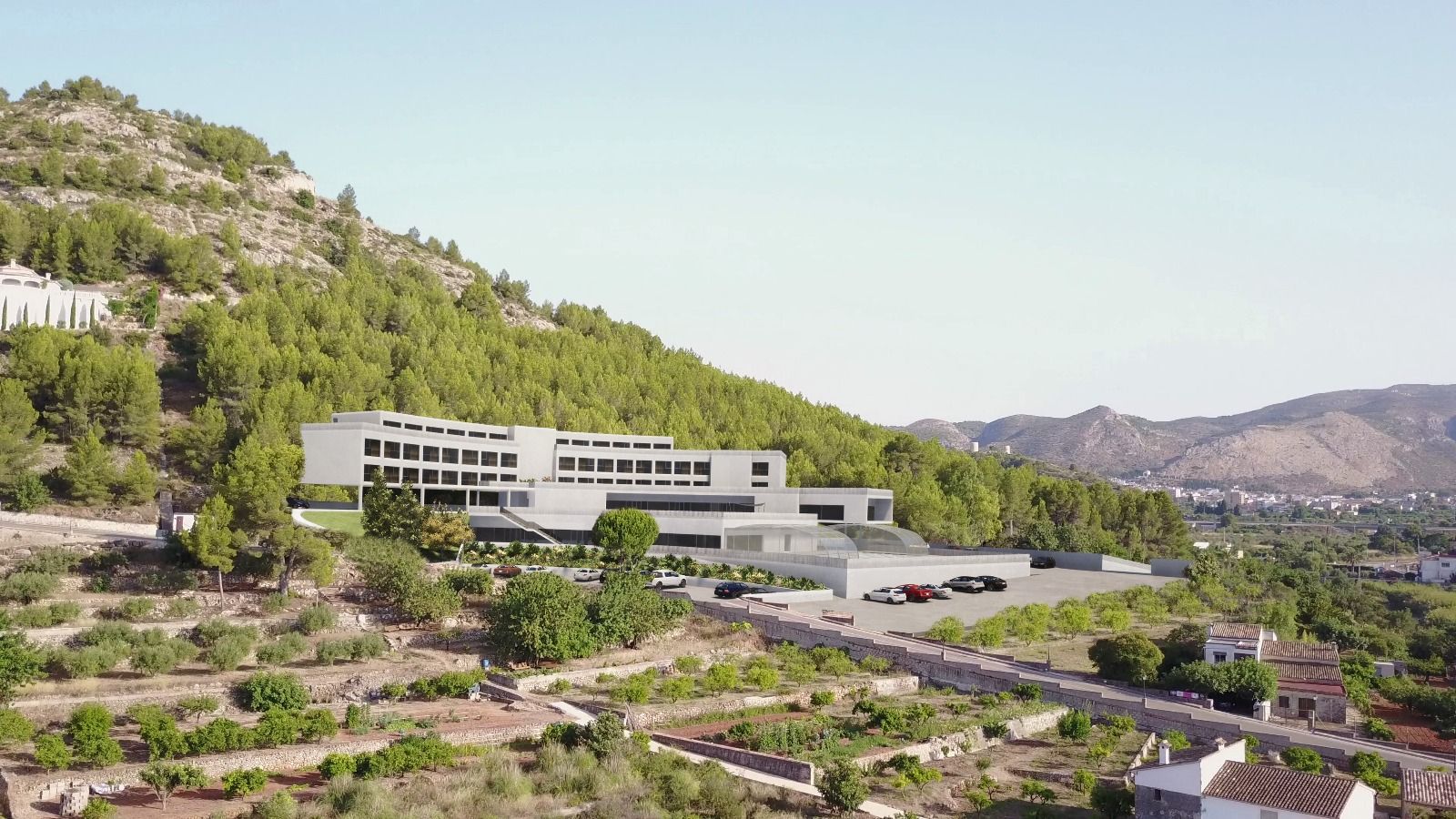Campenaerts and Vermeersch check into Kolobnev's altitude hotel
Lotto Soudal riders swap training in Rwanda for 'hypoxic rooms' in Spain

On Thursday, Victor Campenaerts and Florian Vermeersch checked into a hotel in a sleepy corner of south-east Spain, and took the elevator all the way up to the summit of Everest.
In a twist on altitude training, the Lotto Soudal pair are staying in special atmosphere-controlled rooms, where they can flick – at the touch of a pad – between sea level and the verge of the stratosphere, and anywhere in between.
Altitude camps have long been a part of professional cyclists' training regimes, with the drop in oxygen concentration triggering a rise in red blood cells, but they usually involve actually travelling to a high-altitude location.
Usually, but not always. In recent years, with the theory of 'train low, sleep high' taking hold, the use of altitude tents has become widespread. Despite some ethical question marks, with the practice previously banned in certain countries, it has become a widespread tactic for riders looking for altitude gains from the comfort of their own homes.
Campenaerts and Vermeersch, who will soon be joined by Lotto Soudal teammate Brent Van Moer, are taking things to new heights, staying not in a tent or pod but in plush rooms that look and feel like any other.
The so-called 'hypoxic rooms' are found in Denia at the Syncrosfera Hotel, a four-star establishment founded by Russian former pro rider Alexandr Kolobnev.
Altitude rooms can be found in certain elite sport facilities, while former pro Tadej Valjavec ran a small hotel in Slovenia that La Repubblica dubbed the 'Grand Hotel Doping' – due to Valjavec's biological passport infringement and the ban on altitude simulation across the Italian border.
Get The Leadout Newsletter
The latest race content, interviews, features, reviews and expert buying guides, direct to your inbox!
Kolobnev, however, has wrapped his hypoxic rooms into a sport and wellness facility which, crucially, is located in the corner of Spain where hundreds of pros flock for pre-season training each winter.
Tadej Pogačar's UAE Team Emirates stayed there for their recent pre-season training camp, although the team confirmed to Cyclingnews that no one used the hypoxic rooms. Alpecin-Fenix and Groupama-FDJ have also reportedly made bookings.

On Thursday, Campenaerts and Vermeersch arrived, and they'll be joined on Tuesday by Van Moer. Together, they will prepare for the Classics, training on coastal roads and inland climbs before resting at altitude.
"We have all booked our own room plus a fourth room that we can set up as a living room," Campenaerts recently told Sporza. "We will also eat in that living room, to live at maximum height.
"I will simulate an altitude of 3,000 meters on certain nights, but after a hard workout I might drop to 1,500 meters to let my body rest," he added in a Nieuwsblad interview last week. "On Mount Teide you can't say after a training ride: 'tonight I'm going to sleep halfway up the mountain'."
It's not just a short break but, in Campenaerts' case, a full month. The team told Cyclingnews that Vermeersch and Van Moer will check out on February 13 to race Tour du Var, while the Hour Record holder will stay on until February 23, by which point he hopes to be in top shape for Opening Weekend in Belgium.
The trio had been set to go on a true altitude camp to Rwanda, with Campenaerts having previously seen success off the back of camps in Namibia, but the pandemic caused a rethink.
Campenaerts is no stranger to altitude simulation and notably took things to the extreme during the pandemic, even spending short periods at 10,000 metres, well above the so-called 'death zone' where the oxygen depletion poses a serious threat to human health.
Despite being permitted by WADA and used by many professional cyclists, altitude tents have caused concern, given the artificial nature of the induction of physiological changes in the body. In 2006, WADA considered banning them as its ethics committee deemed they were "probably contrary to the spirit of sport", though no action was eventually taken.
Patrick is a freelance sports writer and editor. He’s an NCTJ-accredited journalist with a bachelor’s degree in modern languages (French and Spanish). Patrick worked full-time at Cyclingnews for eight years between 2015 and 2023, latterly as Deputy Editor.
